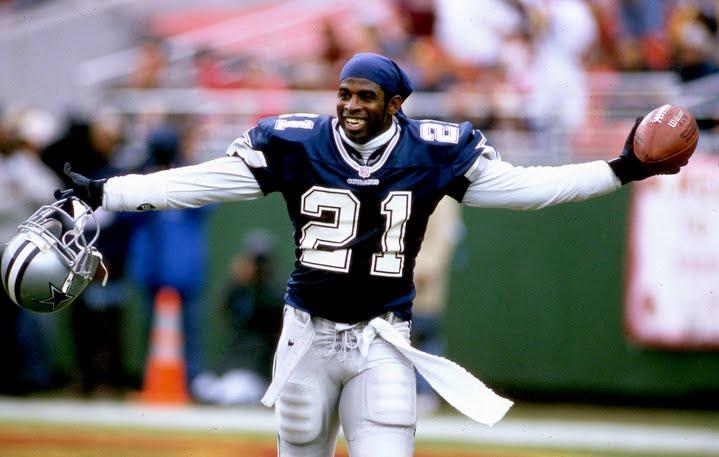Deion Sanders Faces Critical Test in Houston
Deion Sanders, renowned for his electrifying presence and tactical acumen as a football coach, has encountered unforeseen obstacles during his tenure in Houston. Despite lofty ambitions and a clear blueprint to rejuvenate the team, Sanders now grapples with challenges that extend beyond the gridiron, including internal team friction and inconsistent performances. These difficulties highlight the intricate nature of team rebuilding, where raw talent must be complemented by effective leadership and cohesion to achieve success in a fiercely competitive arena.
Several pivotal issues have contributed to this downturn:
- Disrupted team unity: Conflicts among players undermining morale and collective output.
- Persistent injuries: Key contributors sidelined or limited due to ongoing physical setbacks.
- Flawed tactical execution: Game strategies failing to leverage the squad’s core strengths effectively.
These factors compel Sanders to balance his visionary approach with pragmatic adjustments to steer the program back on course amid mounting pressures.
Dissecting the Root Causes of Houston Setback
The recent defeat in Houston has brought to light several fundamental issues impacting the team’s overall output this season. A primary concern is the erratic execution on offense and defense, evident in missed tackles, dropped receptions, and costly penalties at critical junctures. On offense, the passing game has lacked synchronization, with quarterbacks struggling to find rhythm under defensive pressure. Defensively, the team has been unable to stifle Houston’s versatile rushing attack, conceding substantial yardage on pivotal third-down situations.
Strategic shortcomings have also played a significant role:
- Conservative play-calling during momentum-shifting moments hindered offensive drives.
- Insufficient in-game adjustments to counter opponent tactics led to missed opportunities.
- Depth issues in critical positions exposed vulnerabilities when injuries or fatigue set in.
| Challenge | Effect | Recommended Solution |
|---|---|---|
| Offensive Coordination | Frequent turnovers and stalled drives | Intensive quarterback-receiver synchronization drills |
| Defensive Tackling | Increased yards after contact | Emphasize tackling fundamentals and diversify blitz schemes |
| Play-Calling Approach | Loss of momentum and poor third-down efficiency | Adopt more aggressive, flexible in-game strategies |
Recruitment and Program Trajectory Post-Houston
The setback in Houston has significantly impacted recruiting momentum, casting uncertainty over the program’s future appeal to top-tier prospects. Athletes and their families prioritize program stability and a clear path to success—elements now under scrutiny. Insider reports indicate a noticeable hesitation among elite recruits, with some reconsidering their commitments or exploring other options. This shift threatens to stall the progress made under Sanders’ high-profile leadership and media spotlight.
Retaining current players is equally challenging, as morale dips and confidence in the program’s direction wavers. Coaching staff are actively engaged in damage control, emphasizing transparency and reaffirming their commitment to the team’s vision. The table below compares key recruitment metrics before and after the Houston incident, illustrating the shift in momentum:
| Metric | Before Setback | After Setback |
|---|---|---|
| Verbal Commitments | 12 | 7 |
| Official Visits Scheduled | 18 | 9 |
| Decommitment Rate | 3% | 15% |
- Immediate overhaul of recruiting tactics necessary to regain lost ground
- Increased pressure on coaching staff to produce swift, measurable improvements
- Heightened scrutiny from media outlets and rival programs amid uncertainty
Pathways to Restoring Competitiveness and Confidence
The Houston setback has underscored the critical need for a comprehensive strategic overhaul within Deion Sanders’ coaching regime. To reverse the current trajectory, the staff must conduct an exhaustive evaluation of tactical approaches and player deployment. Embracing flexibility in offensive and defensive schemes, while cultivating a resilient team culture that learns from setbacks, will be vital to rebuilding morale and performance. Promptly addressing execution flaws and communication gaps can lay the foundation for a successful turnaround.
Priority focus areas include:
- Advanced player development: Concentrating on skill enhancement to boost in-game effectiveness.
- Analytics-driven strategies: Utilizing data insights to refine play-calling and personnel decisions.
- Reinforcing team chemistry: Initiatives aimed at strengthening interpersonal bonds on and off the field.
- Holistic conditioning programs: Integrating physical rehabilitation and mental resilience training to reduce injuries and improve readiness.
| Focus Area | Current Issues | Proposed Adjustments |
|---|---|---|
| Offense | Predictable schemes, low third-down success | Incorporate diverse formations, prioritize quick-release passing |
| Defense | Weak pass rush, missed tackles | Implement aggressive blitz packages, enhance tackling drills |
| Special Teams | Erratic returns, blocked kicks | Revise blocking strategies, emphasize ball security |
Final Thoughts on Sanders’ Houston Challenge
The recent difficulties in Houston serve as a potent reminder of the complexities Deion Sanders faces in elevating his football program. While his magnetic leadership and national profile have drawn considerable attention, this setback highlights the inevitable growing pains of forging a competitive team. Moving forward, Sanders and his coaching staff must confront these obstacles decisively to transform potential into consistent achievement. As the season unfolds, the football world will keenly observe how the Prime Time coach navigates this pivotal juncture both on and off the field.




